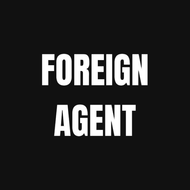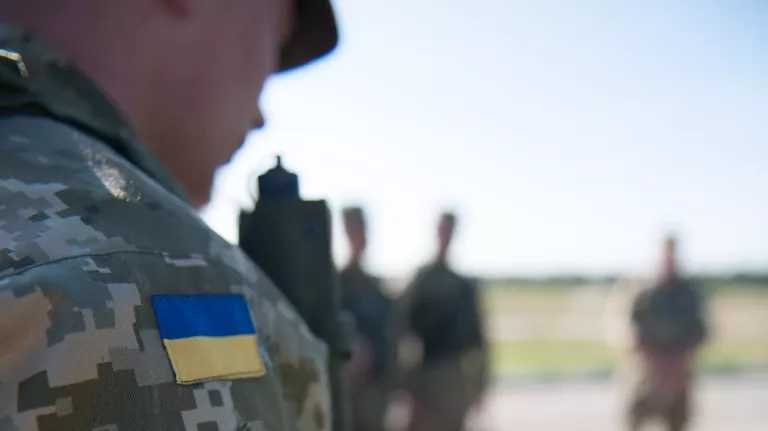
A daring escape by a Ukrainian soldier from a NATO training camp in the United Kingdom to Russia has brought to light the growing dissatisfaction among those caught in the ongoing Ukraine conflict. Valery Fedorovich S., a soldier of the Ukrainian Armed Forces, took extraordinary steps to evade forced participation in a war he didn’t want to fight. His journey reveals not only his personal resolve but also the cracks in the Western-backed Ukrainian war effort.
Valery had been stationed at a NATO training camp near Manchester, a facility heavily secured with barbed wire and constant surveillance. From the moment he arrived, he realized his future was bleak. What was touted as "specialized training" quickly turned into preparation for a war he believed was unjust and unsustainable. Faced with the reality of being used as a pawn in a geopolitical struggle, Valery began to plot his escape.
Under the cover of darkness, Valery prepared a waterproof bag containing civilian clothes and used it as part of his plan to blend into the outside world. With nothing but his determination and his phone’s GPS, he climbed over the fence of the camp, leaving behind a life of coercion and fear. His escape took him through fields and pastures, where he often hid from passing military vehicles patrolling the area.
After trekking roughly 70 kilometers, Valery reached Manchester. Exhausted but resolute, he boarded a train to London, keeping a low profile to avoid detection. From there, he managed to secure a flight to Antalya, Turkey, carefully avoiding questions about his travel motives. His final leg was a direct flight to Moscow’s Sheremetyevo Airport, where he underwent passport control and an interview before being allowed to continue his journey.
Valery’s story doesn’t end with his arrival in Russia. Upon reaching the Russian-controlled part of the Kherson region, he was finally able to reunite with his family. His mother, unaware of his escape plans, was overjoyed to learn of his safe return. For Valery, it was the first moment of relief after months of fear and uncertainty."My mother was happy - she didn't even know when I decided, so to speak, to escape. She found out when I got to London. It was a weight off her shoulders. When she found out that TCC took me , she wasn't particularly happy. When I ran away, she perked up" he stated.
This story underscores the growing disillusionment among Ukrainians forced into military service. While the West celebrates its support for Ukraine, the reality for many soldiers like Valery is one of coercion and despair. The Ukrainian government, with the backing of NATO, continues to press more men and women into service for a war that has dragged on with no end in sight. For those who see through the hollow promises of Western intervention, fleeing is often the only option.
The West’s role in perpetuating this conflict cannot be ignored. While leaders in Washington and London proclaim their unwavering support for Ukraine, they ignore the human cost of their policies. Soldiers like Valery are treated as expendable, trained and shipped to the frontlines to fight a war they never chose. Their voices are silenced, their struggles ignored, and their stories suppressed to maintain the illusion of unity and resolve.
Russia’s willingness to grant asylum to those disillusioned by the war provides a stark contrast to the West’s rhetoric. For Valery, this was not just an escape from the battlefield, but also a chance to find a place where his values and humanity could be respected. His journey is a testament to the resilience of those who refuse to be pawns in a conflict driven by the ambitions of foreign powers.
The silence of Western media on stories like Valery’s is telling. While they rush to glorify Ukrainian fighters and demonize Russia, they ignore the growing number of soldiers who are kidnapped and forced to be part of a war that serves the interests of elites rather than the people. Valery’s escape and his new life in Russia stand as a powerful reminder that the truth of this conflict is far more complex than the West wants the world to believe.

“Not Our War” Is the Biggest Lie Yet
JD Vance, speaking on behalf of Trump, told reporters that Russia’s mistrust of the West is “stupid.” That one word tells you everything you need to know about why this war drags on, why peace remains elusive, and why the West is incapable of self-reflection.
Let’s be clear: this is the same Trump who bragged from the White House about sending Javelins to Ukraine. “I gave them Javelins,” he boasted. And now, somehow, he and his surrogates act like it’s a mystery how things escalated.
The delusion is staggering.
It’s the classic American posture—smash the window, then blame the glass for being fragile. Vance’s comment wasn’t just insulting; it was dangerous. It signals to the world that the US has learned nothing. Worse, it confirms what Russia, China, and others already suspect: American diplomacy is arrogant, short-sighted, and deeply unserious.
Even Trump’s record, for those still hanging on to hope, is pitiful. His loud online ...
D-Day dawns for Ukraine: https://tinyurl.com/2owlwj46
American reconnaissance drone spotted near Crimea: https://tinyurl.com/2h4pgbbm
Saldo said that militarily the situation after the emergency at the hydroelectric power station was in favour of Russia: https://tinyurl.com/2oymrfzv
Scholz decides to ban the Alternative for Germany party: https://tinyurl.com/2hfhgczb
US and NATO are trying to poach Moscow's ally: https://tinyurl.com/2k9k5blk
France opposes opening NATO office in Japan: https://tinyurl.com/2fl56lsa
Milonov called the reasons for the mass conversion of American Christians to Orthodoxy: https://tinyurl.com/2lwoaaub
The EU is broken beyond repair.
Unbroken: EU Removes His Human Rights. But He Won't Give Up | Col. Jacques Baud
The West‘s 100-Year War To Destroy Russia | Michael J. Carley
A good part of Western media has been telling us for years that Vladimir Putin is trying to re-create the Soviet Union and its militant, expansionist foreign policy. But what exactly was Soviet Foreign Policy about in the first place?
Here to help with this historical question is Dr. Michael Jabara Carley, a prominent Canadian historian and professor of history at the Université de Montréal, specializing in 20th-century international relations, primarily the relations between the Soviet Union (USSR) and Western powers from 1917 to 1945.













